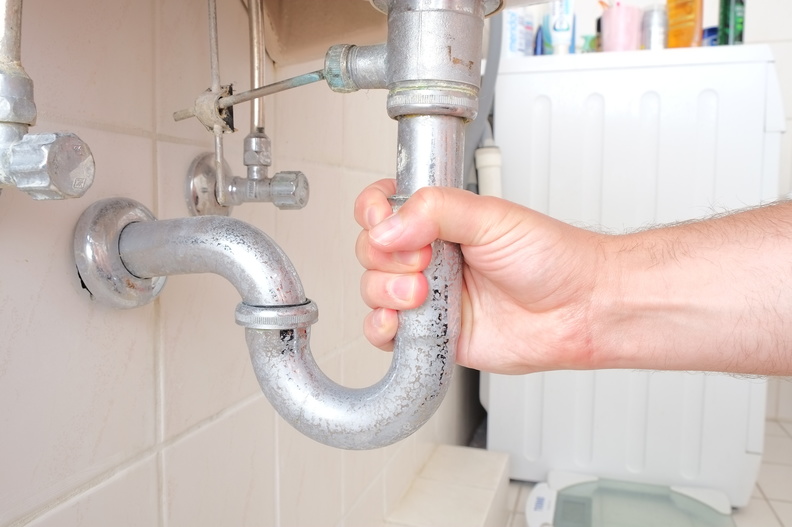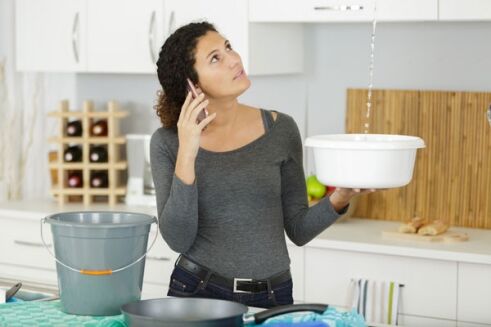Immediate Tips for Emergencies: What to Do Until Help Arrives
Immediate Tips for Emergencies: What to Do Until Help Arrives
Blog Article
This great article down below pertaining to What to Do During a Plumbing Emergency is seriously informative. Don't miss it.

Plumbing emergencies can strike at any time, causing stress and possible damages to your home. Whether it's a ruptured pipeline, a stopped up drainpipe, or a leaking tap, recognizing just how to take care of the circumstance up until an expert plumbing arrives can save you from more difficulties. This write-up supplies necessary emergency plumbing pointers to aid you minimize damage and reclaim control throughout a pipes dilemma.
Turn Off the Water Supply
The very first step in any kind of plumbing emergency is to shut off the water. For local concerns, such as a dripping faucet or toilet, switch off the shutoff near the fixture. When it comes to a major leakage or ruptured pipe, locate your home's major water shut-off shutoff and turn it off quickly. Recognizing the place of these valves ahead of time can save valuable time throughout an emergency situation.
Shut Off Your Hot Water Heater
In specific emergencies, such as a burst pipeline, it's smart to shut off your hot water heater. This avoids overheating or damages to the unit when water quits streaming. Turn off the power supply to the hot water heater (electric or gas) and allow it cool off to avoid possible risks.
Momentarily Quit a Burst Pipeline
A burst pipeline can lead to substantial water damage in mins. To reduce the concern:
Call a specialist plumbing technician instantly to resolve the problem permanently.
Have an Emergency Situation Plumbing Set
Prepare a standard plumbing emergency situation kit to manage small problems successfully. Your kit must consist of:
Having these tools accessible can make a significant difference in your capacity to manage emergencies.
Unclog Drains Pipes Securely.
A blocked drainpipe can be a frustrating and unpleasant issue. Right here's just how to tackle it:.
If these approaches do not work, avoid using extreme force, as it may worsen the obstruction.
Handle Overflowing Toilets.
An overflowing toilet can cause immediate mayhem. Right here's what you must do:.
Address Little Leakages with Momentary Fixes.
Small leakages can swiftly end up being significant problems if left unchecked. Use these short-lived solutions up until professional aid gets here:.
While these fixes aren't permanent, they can aid lessen water loss and damage.
Handle Frozen Piping Meticulously.
In cooler environments, frozen pipelines are an usual emergency. If you suspect an icy pipe:.
Know When to Call a Specialist.
While quick fixes can assist momentarily, specific plumbing problems require prompt expert focus. Call a plumbing professional if:.
Promptly speaking to an expert makes certain the issue is solved appropriately and protects against additional difficulties.
Avoid More Damage.
Taking quick activity to reduce damages can conserve you time and money in the future. Here's exactly how:.
Conclusion.
Plumbing emergency situations can be frustrating, but with the best understanding and devices, you can manage the circumstance successfully till help arrives. By shutting off the water system, addressing small leaks, and utilizing short-lived repairs, you can lessen damages and maintain your home safe. Remember, these suggestions are short-term options; constantly get in touch with a licensed plumbing to deal with the source of the issue. Prep work and fast reasoning are your ideal allies in any kind of pipes emergency.
8 Helpful Tips for Managing Plumbing Emergencies at Home
If your plumbing system hasn’t failed once, wait for it because almost everyone has a story to tell. Sometimes, it could be simple emergencies such as a leaking pipe, a blocked cistern, or even a big burst pipe. In situations like this, you need to have some handy tips to save you some money and from possible damages.
Take care of minor issues early.
Sometimes, you could have avoided an emergency by taking proactive measures while it was still early. Some major plumbing emergencies can be a result of an ignored minor issue. We recommend that you have items like plumbing tapes and other related items. A plumbing tape can allow you to manage minor leaks before the plumber arrives.
Cut off the water supply.
This tip is essential in almost any type of leakage problem. For problems like minor leakages in the toilet or kitchen, turn off the supply that takes water to the affected pipes. If the leakage is a major pipe, you must shut off the supply valve to the entire building. This will help you avoid flooding your home and neighbors if you share a flat.
Know your plumbing system
Folks typically move into a new apartment without understanding the water supply around the building. This can prove disastrous if a water emergency arises and the plumber is far away. The previous tip will prove useless if you don’t practice this one. More importantly, know where your water shut-off valve is located – you’ll need that knowledge to prevent potential home floods.
Have some common handy tools
There are lots of plumbing emergencies that you can handle without hiring a plumber. That’s why you must keep some tools available always. Some tools that you can use to fix simple plumbing emergencies easily include plumbing tapes, screwdrivers, thread seal tapes, plungers, pliers, tape measures, and rubber gloves.
Insulate your pipes from cold
You’ll save yourself from many plumbing expenses if you protect your water pipes from the cold. This is because of the harmful effects that cold weather can have on your pipes. During winter, your pipes can burst from being overly expected to freezing temperatures. So, make sure insulators are there to keep the pipes working correctly.
Avoid practices that will clog your toilet.
Many people indulge in practices that can damage the plumbing system of the entire building. One of these is when they use their toilet to dispose-off garbage. They flush all kinds of things, such as paper towels, bandages, hairs, female sanitary products, etc., down the toilet. This will block your toilet in the long run, incurring unnecessary expenditures. Dump such waste in the trash instead.
Check your dials regularly.
Sometimes, there could be leakages in your home without noticing them in time. So, constantly monitor your water meter dial. If the dial is reading when there is nobody using water, this is an indicator that there is leaking. Check for leaks immediately. Call a plumber as soon as possible if you can’t find any.
https://www.constructionplacements.com/8-helpful-tips-for-managing-plumbing-emergencies-at-home/

As a serious reader about , I imagined sharing that excerpt was sensible. Appreciated our entry? Please share it. Let someone else check it out. Many thanks for going through it.
Contact Us Report this page